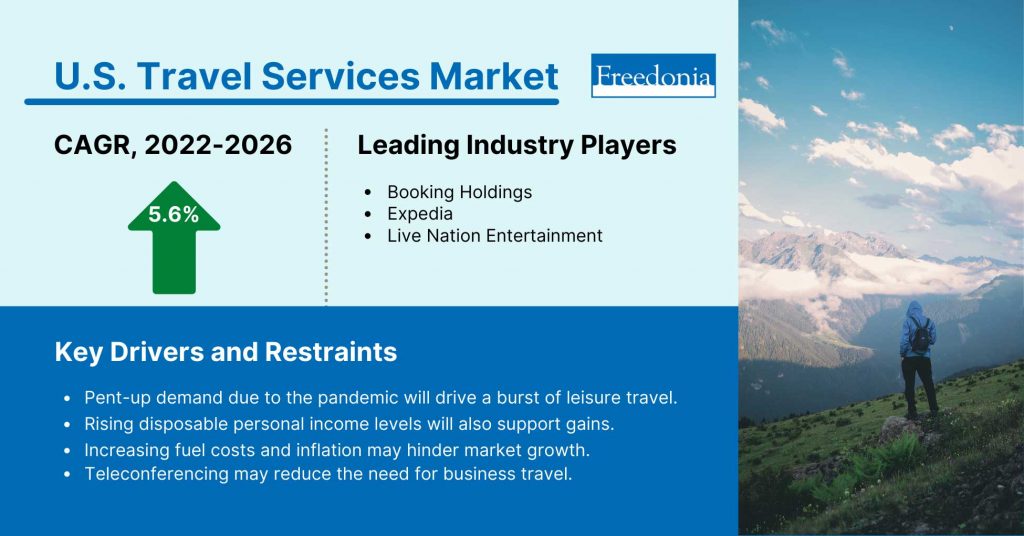There’s no doubt the COVID-19 pandemic took a heavy toll on the U.S. travel industry, but a recovery is currently underway.
Just how much is the travel industry growing? What are the key trends and opportunities in this market?
The recently published report Travel Services: United States by Freedonia Focus Reports provides up-to-date travel industry statistics and expert insights to help you quickly gauge the pulse of the market and assess the impact of the pandemic, inflation, and rising fuel costs on different market segments.
Based on the report, here are seven key factors to know about the U.S. travel sector.

- Travel industry forecast: In 2022, U.S. travel service industry revenue is forecast to jump 11% from 2021 levels. Looking further ahead to 2026, U.S. travel service industry revenues are expected to rise at a more moderate pace of 5.6% per year.
- Market drivers: The market is driven by “cabin fever” and pent-up demand among leisure travelers after the restrictions, delays, and cancellations associated with the COVID-19 pandemic. Rising disposable personal income levels will also support market growth, and business travel is expected to pick up as well.
- Market challenges: Rising fuel costs and inflation may hinder market growth, especially over the short term. In addition, the widespread use of teleconferencing and remote collaboration technologies may reduce or eliminate the need for business travel for many companies.
- Fast-growing categories: Travel service revenue from commissions is leading the way in terms of growth. This segment includes traditional travel agencies and online travel agents such as Expedia and Booking Holdings, which make up as sizable share of industry revenue.
The U.S. travel industry is highly fragmented and includes small independent agencies and tour operators, as well as large international corporations. In 2019, 14,400 firms were active in the U.S. travel services industry.
- U.S. travel trends: Instagram, TikTok, and the rise of travel vloggers on YouTube have helped intensify consumer interest in travel and driven demand. In addition, as more businesses become geographically dispersed, the demand for business travel may grow. However, the need for business travel will be tempered by the availability of Zoom and Microsoft Teams.
- Competitive landscape: The U.S. travel industry is highly fragmented and includes small independent agencies and tour operators, as well as large international corporations. In 2019, 14,400 firms were active in the U.S. travel services industry.
- Leading travel companies: Top industry players include Booking Holdings (which operates Booking.com, KAYAK, Priceline, and Rentalcars.com) and Expedia (which operates Expedia, Vrbo, Hotels.com, Orbitz, Travelocity, ebooks, and trivago). Another top company includes Live Nation Entertainment, the leading distributor of tickets for live entertainment events through its Ticketmaster.com platform.



